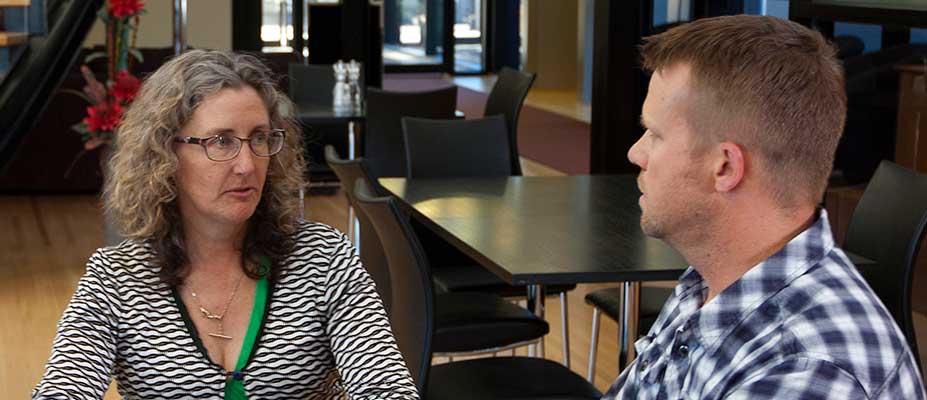
eResearch

Characterised by collaboration and facilitated by fast, high-capacity networks, the range of eResearch activities is diverse and multi-disciplinary. Key themes and drivers of eResearch include:
- data management and sharing;
- research collaboration;
- high performance computing; and
- customised discipline specific technologies to support research practices.
Through its practice at CeRDI, eResearch is:
- Applied - research focused on collaborative design that results in co-developed solutions that meet specific real-world priorities for our research investors, stakeholders and communities.
- Impactful - research that creates novel and disrupting technologies that enhance industry, sector, and community practices; improve digital literacy among researchers and industry practitioners; and influences social change through implementing data and information democracies.
- Multidisciplinary and cross-disciplinary - in that CeRDI contributes to a range of Field of Research (FoR) codes (information and computing sciences; physical geography and environmental geoscience; earth sciences; human movement and sport science and historical studies), and collaborates with researchers across almost all Federation University Schools.
- Collegiate, collaborative and inclusive - when leading and participating in a range of research projects at the international, national and regional scale.
CeRDI’s expertise in eResearch is globally recognised, especially as an independent (i.e. outside of both government agencies and corporations) practitioner active in the pre-competitive space of data and information management. This relatively unique position provides CeRDI with the freedom to federate data from all available sources in the public and private sectors, including open data, legacy data, crowdsourced data, sensor data, private sector data or academic research data.
Among the major research investors and collaborative research partners at the international, national and state and regional level are:
International
- OGC Groundwater Standards Working Group: Geological Survey of Canada - Natural Resources Canada, U.S. Geological Survey, Bureau de Recherches Geologiques et Minieres (France), University of Salzburg (Austria), European Commission Joint Research Centre (European Union), Geological Surveys of Germany, International Groundwater Resources Assessment Centre (UNESCO), CSIRO (Australia).
- OGC Soil Interoperability Experiment (Agriculture Domain Working Group): Manaaki Whenua Landcare Research (New Zealand), CSIRO (Australia), ISRIC World Soil Information (Netherlands), Food and Agriculture Organisation (United Nations), Agriculture and Agri-Food Canada, US Department of Agriculture, European Commission Joint Research Centre (European Union), International Union of Soil Science, Colombia University.
National
- Soil CRC, Food Agility CRC, Digital Health CRC, Grains Research and Development Corporation (GRDC), CSIRO, Data 61, Regional Universities Network Precision Agriculture Flagship, Australian Research Data Commons, Bureau of Meteorology, Australian Government (Department of Agriculture and Water Resources, Department of the Environment and Energy, Department of Industry, Innovation and Science).
State
- State government departments and agencies including Agriculture Victoria, Department of Environment, Land, Water and Planning, Emergency Management Victoria and the Country Fire Authority. Philanthropic and other grant bodies such as the Collier Charitable Fund, Helen Macpherson Smith Trust and Victorian Legal Services Board and Commissioner. CeRDI also partner with the Centre for New Energy and Technologies, Foundation for Rural and Regional Renewal, Geography Teachers Association of Victoria, Zoos Victoria and Youthlaw.
Regional
- Regional collaborators include catchment management authorities, water authorities, health services, primary health networks, local governments, industry groups, farming groups, Landcare groups, environment groups, community groups and private industry.
